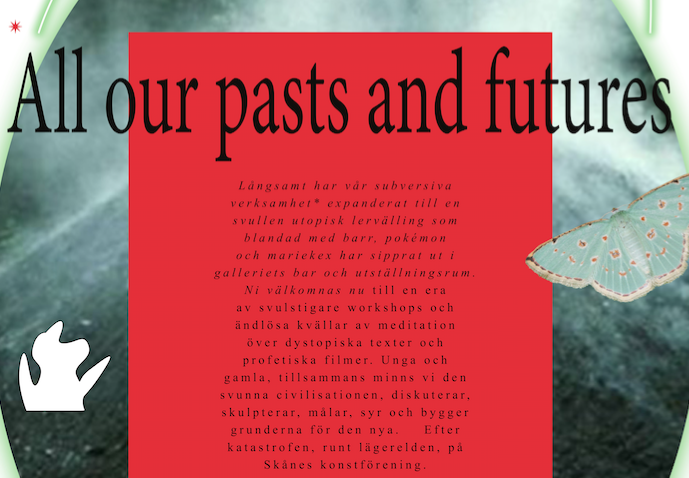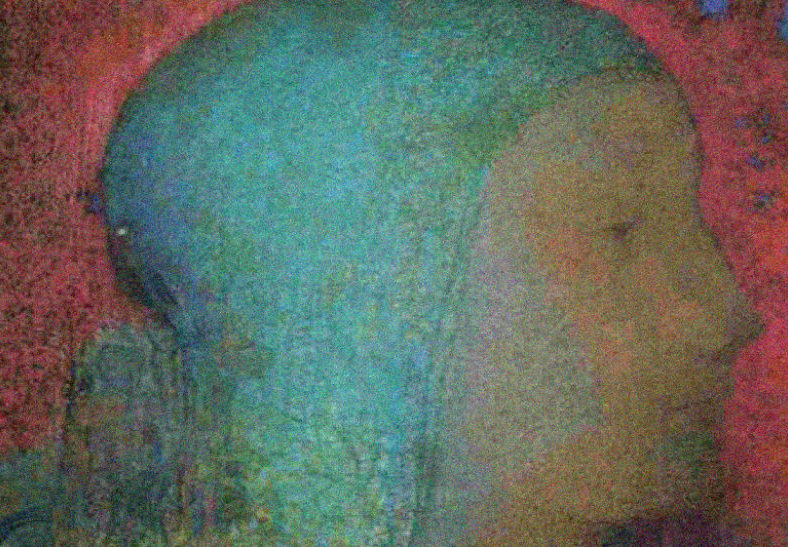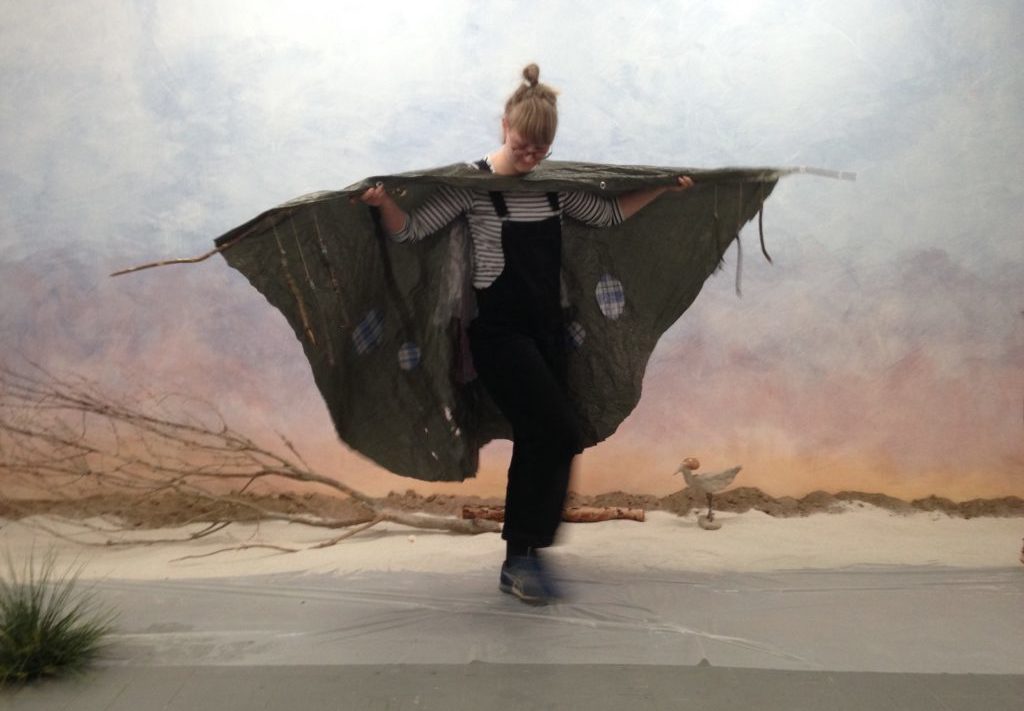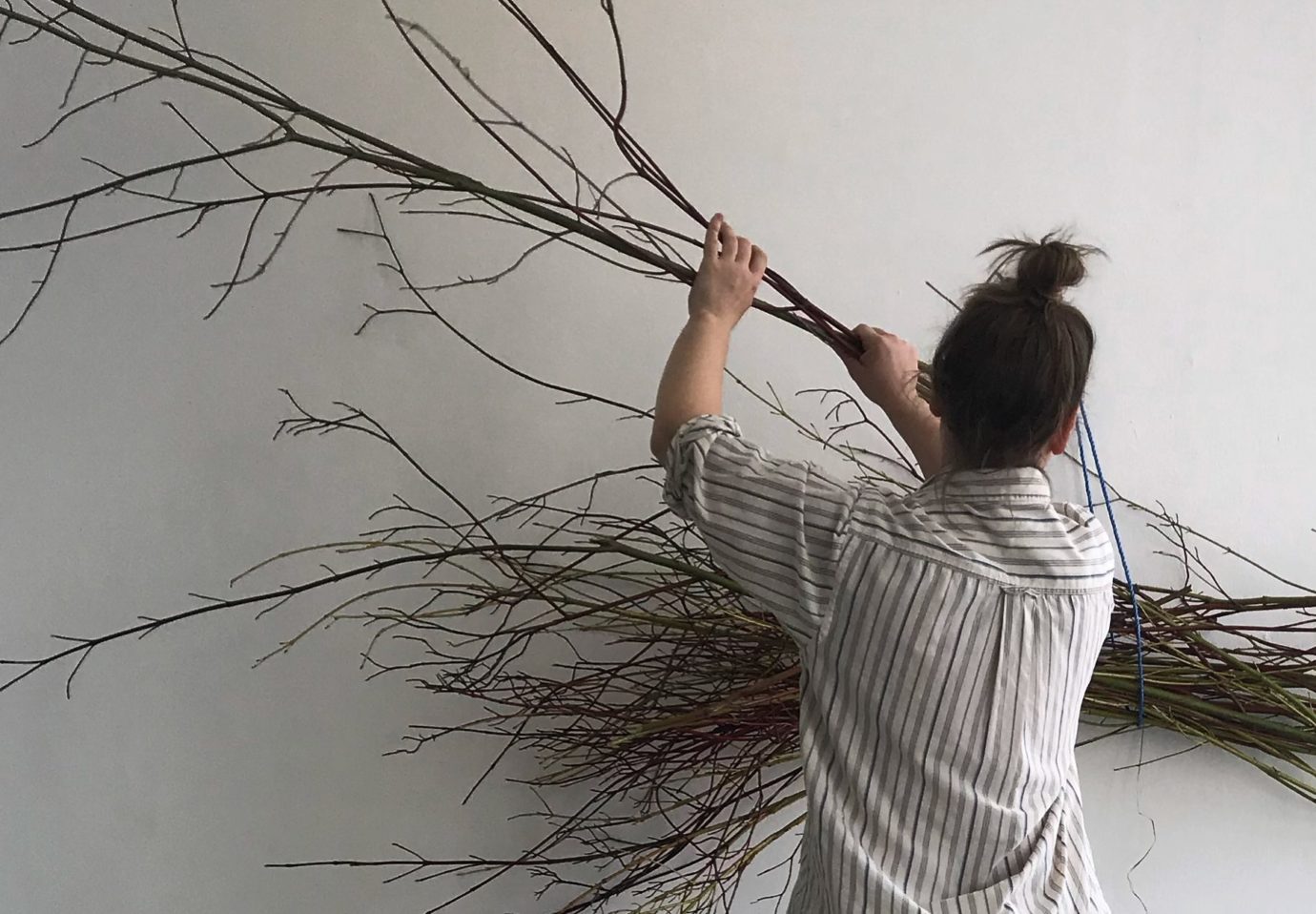The Postapocalyptic crafts collective Babels Rehab – All our pasts and futures

The Post-apocalyptic crafts collective Babels Rehab – All our pasts and futures
Opening and Workshop – Friday 13/4 17:00-21:00
The exhibition is open April 13 – May 6, 2018
Slowly our subversive operation* has expanded to a swollen utopian stream of mud that has mixed with twigs and Pokémon and seeped into the art gallery’s bar and showroom. We welcome you to an era of grander workshops and endless nights dwelling on dystopian texts and prophetic films. Young and old, together we remember the lost civilisation, we discuss, sculpt, paint, sew and build the new.
After the disaster, around the campfire, at Skånes konstförening.
In a world in pieces a group of people gather to form a new society. The group is diverse, consisting of grownups as well as youths and kids. Together they examine the rubbles of our civilization. What is worth to re-create and what can be done better? What do we need? And perhaps the question above all other questions – what do we want when we get the chance to start over? The group begins to investigate what can be reused, old things and pieces are reviewed and given new life. The consumerist society that preceded the current state has left an inexhaustible supply of materials. Together the group are experimenting with different techniques, they carve, throw and find new features to the old things found in the heaps of junk. They talk about what it was like before, how did the infrastructure work? How did everyone get access to water? How did they make all things and why? How did we live?
Babels Rehab is a fictional frame crafted by the artist Nina Jensen and used as a basis for the workshop activities. When participants visit Babels Rehab they don’t visit Skånes konstförening but a world after the catastrophe where their own stories are woven together with all other stories that together form the tale of the post apocalyptic crafts collective Babels Rehab. A mythical collective crafting hope in a broken future.
*Open art workshops for adults and kids, free of charge and with a thousand participants since 2016.
Program
Friday 13/4 17:00-21:00 Opening with open workshops in ceramics, painting and the building of huts
Thursday 19/4 18:00-21:00 Postapokalas – workshop in costume and mask creations
Tuesday 24/4 18:00-21:00 Drawing Tuesday
Wednesday 25/4 18:00-21:00 Babels Film Club
Thursday 26/4 18:00-20:00 Reading Group
Saturday 28/4 13:00-16:00 Postapokalas – workshop in costume and mask creations
Wednesday 2/5 18:00-20:00 Reading Group
Saturday 5/5 18:00-21:00 Finishing Postapokalas with workshops
All workshops are drop in, open to kids and adults, free of charge. The reading group will be held in English.
In the absence of archives, or in the absence of memory, or if the chain of oral transmission of history breaks, our past becomes a pool of endless possibilities, ordered by nature or by the newly emerging class structures of any post-apocalyptic society. Human dystopian imagination seems endless, as every person searches for traces of their own reflection in the archeological layers of their own making, and constructs, if they are allowed, a narrative, a path through history informed only by their own personal longings, needs and behaviors.
Let us consider history, as it is still scripted in the world today. We already know that it is written from a perspective that was – and to a great extent still is – in the eyes of colonists, of religious structures, of white, powerful cisgender men. Truth is in the eye of the beholder, a matter of personal opinion, and the beholders, in the case of history as written and taught, were archons, keepers and interpreters of archives.
Archival material exists in many forms: the easiest one to imagine is the storage unit, a place with countless shelves where the past lays in cardboard boxes, Plexiglas containers, or other such places, dimly lit, with heat and moisture control, to preserve handmade papers too thin and pasty to be touched by the light of day. In the storage units, any item is counted and encrypted with its own series, its own archival code, so that it could be quickly retrieved and resurfaced.
The humongous servers and digital preserves of Internet companies are yet another form of archive, lost in the woods and wilderness of first world countries, in the safest places, the ones where no one would ever think to attack, destroy and erase the free floating signifiers of our interlinked lives.
… In order to have a post-apocalyptic present, such as it is the hypothesis of Babels Rehab, there need to be several factors:
- A past – easier to imagine as dystopia.
- An apocalypse-like event – a big Boum, Badaboum, to put it in the immortal words of Leeloo de Sebat from the film Fifth Element – which erased (almost) all archives and dominant narratives of history.
- Survivors of many species, in order to maintain enough ecological balance for life to continue.
One of the possible stories of Babels Rehab is that of a post-apocalyptic place where humans can come to unlearn, re-learn and remember, after all archives and all memory of the catastrophe were lost. An Arcadian place, of sorts, where survival is possible, class structures, although still existing, are less painfully enforced, access is granted and visitors are welcome to feast and delve in the stacks of twigs and mounds of clay, in the random leftovers of lost civilizations, in order to bring to the surface their happiest triggers or the furrows of their fears.
All our pasts and futures brings Babels Rehab forth as a dual presence: a meeting place and a place of memory lost, yearning for some remembrance of what was before. Therefore, the space of the exhibition is divided between the possible pasts and the futures under construction. The installation of The Dystopian Past suggests one of the many lost pasts that could make up Babel’s present. It tells the story of an angel – the mandatory angel of the Apocalypse, of course – who, in need of a past, starts an archeological foray of forensic minutia into the layers of lost civilizations and, from the bits and pieces dug out, makes up a story entirely their own, about what may have caused the end of the world.
But the angel’s story is in no way the only possible one. Contrary to the hegemonic narratives of history as we know them and live them today, we are inviting you to make up your own paths, write and compose your own versions of what may have been before the catastrophe, before Babels Rehab, and explore the possibilities of pasts yet unwritten or lost to mainstream memory.
To this account, you will find many such fragments of texts throughout the entire exhibition – to read, to consider, to ignore, to reconfigure, to continue or to exalt. The choice is yours, alone. Be mindful only of:
- If the past is easier to imagine as dystopia, who are then the engineers of these dystopias?
- What and/or who did the Big Boum erase and what and/or who got erased by any bigger or smaller Boum throughout human history?
- If any dystopian scenario preaches the same endless unfair lesson – the survival of the fittest – who gets to survive in your own narrative?
Feminist dystopias: Reading Group
In order to attend the meetings of the Reading Group, follow its dedicated Facebook event – and write us an email to info@skaneskonst.se – this is important because we will send you the reading material via email. Please include the words Reading Group in the title of your message.


